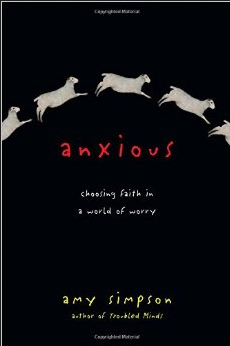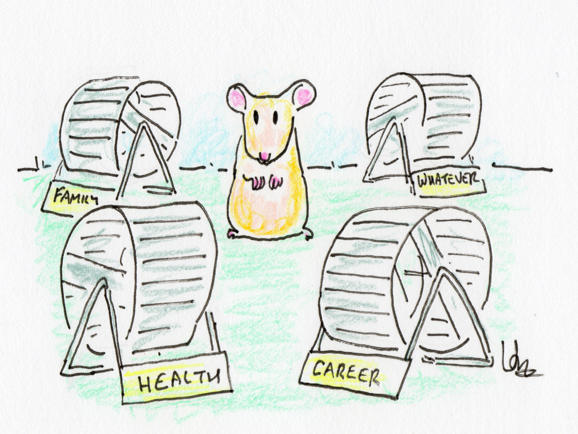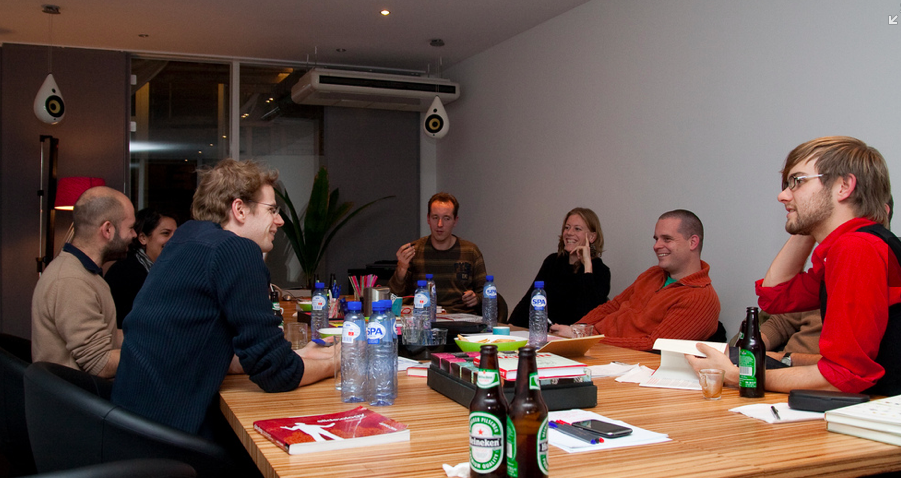It’ll sound like I am joking but I’m not: I was worried about reading this book about worry.
Maybe it was the subtitle that had me most worried, partly because it touches a nerve — I know that it is possible to “choose faith in a world full of worry” but it’s a lot easier to return like a dog to the chew the old, tired bone of worry. In true worrywart fashion, I feel that adequately worrying my way through my litany of worries galvanizes me against the possibility of the things I worry about actually taking place.
And even if I know, rationally, that this is untrue, and that I may as well enjoy the moment I am in instead of “taxing my life with forethought of grief” (to use Wendell Berry’s beautiful phrase), the sad truth is that sometimes I actually forget what I was worrying about and then worry that I am not worrying enough about x, y, or z.
Amy Simpson’s book sat on my table for a while, and then, on a crisp fall afternoon, I curled up with a blanket in the rocking chair on my front porch and read and read. And there on the first page, Amy assured readers that her book is not a shamey, blamey book. It is an invitation to live into the truth of our lives: yes, there are dangers and things to be afraid of, yes, we have responsibilities, no, we can’t know or control the future, yes, that’s kind of hard, no, we are not God.
We are not God.
I am not God.
The saddest part about worry — and Amy touches on this quite a lot — is that it prevents us from enjoying what we have when we have it. Rather than enjoy health or prosperity when we have it, we worry about disease and financial ruin, even when things seem to be going well.
And sometimes that’s because worrying makes us feel important: godlike, as if the whirring of our hamster wheels of worry are actually keeping the earth rotating on its axis and revolving around the sun.
Which would make us very, very important and very, very powerful, indeed!
I thought of a recent interview I saw with Marilynne Robinson on Bill Moyers’ show. Marilynne Robinson has written and spoken persuasively on fear.
MOYERS: What’s the source [of fear]?
MARILYNNE ROBINSON: I think that, I mean, it’s exciting to people.
BILL MOYERS: Fear?
MARILYNNE ROBINSON: Fear. Yes. I mean, look at the ways in which fear manifests itself. You know, this sort of anti-immigration feelings, that people with these crazy weapons, people, buying apocalyptic money, or freeze-dried apocalypse dinners and things like that. You know, I think that it makes a little narrative that makes you the hero in an imagined drama. It makes anybody else a potential threat. It’s like late-night TV or something, you know? And I think that it has been pushed on people, it’s used as a stimulus to make people watch cable network A rather than B and so on. And it’s become a kind of addiction, I think.
As I wrote more than two years ago for Christianity Today:
Fear is unChristian, says Robinson. Calvinists—Robinson identifies herself as such—have been said to “fear God and nothing else.” Yet Americans—and perhaps especially, religious Americans—can’t seem to get over the idea that we are under attack. “We’re stuck in psycho-emotional bomb shelters,” says Robinson, when, in fact, we Westerners are more free, safe, and stable than most people throughout the world and throughout history have ever hoped to be. “Why not enjoy it?” said Robinson with the hint of a chuckle. More soberly, she argued that fear—and people feeling “justified in fear”—leads to violence in the form of “preemptive self-defense.”
Yes, there is much to fear. There is the truth that all of us will suffer loss and sorrow and death. We can’t escape or prevent that. And in truth, so many things that were once rational and reasonable fears — death from vaccine preventable diseases, say — have been mostly eliminated for us in the developed world. We are, by global and historical standards, wonderfully prosperous and shockingly free.
Why not enjoy it, indeed?













